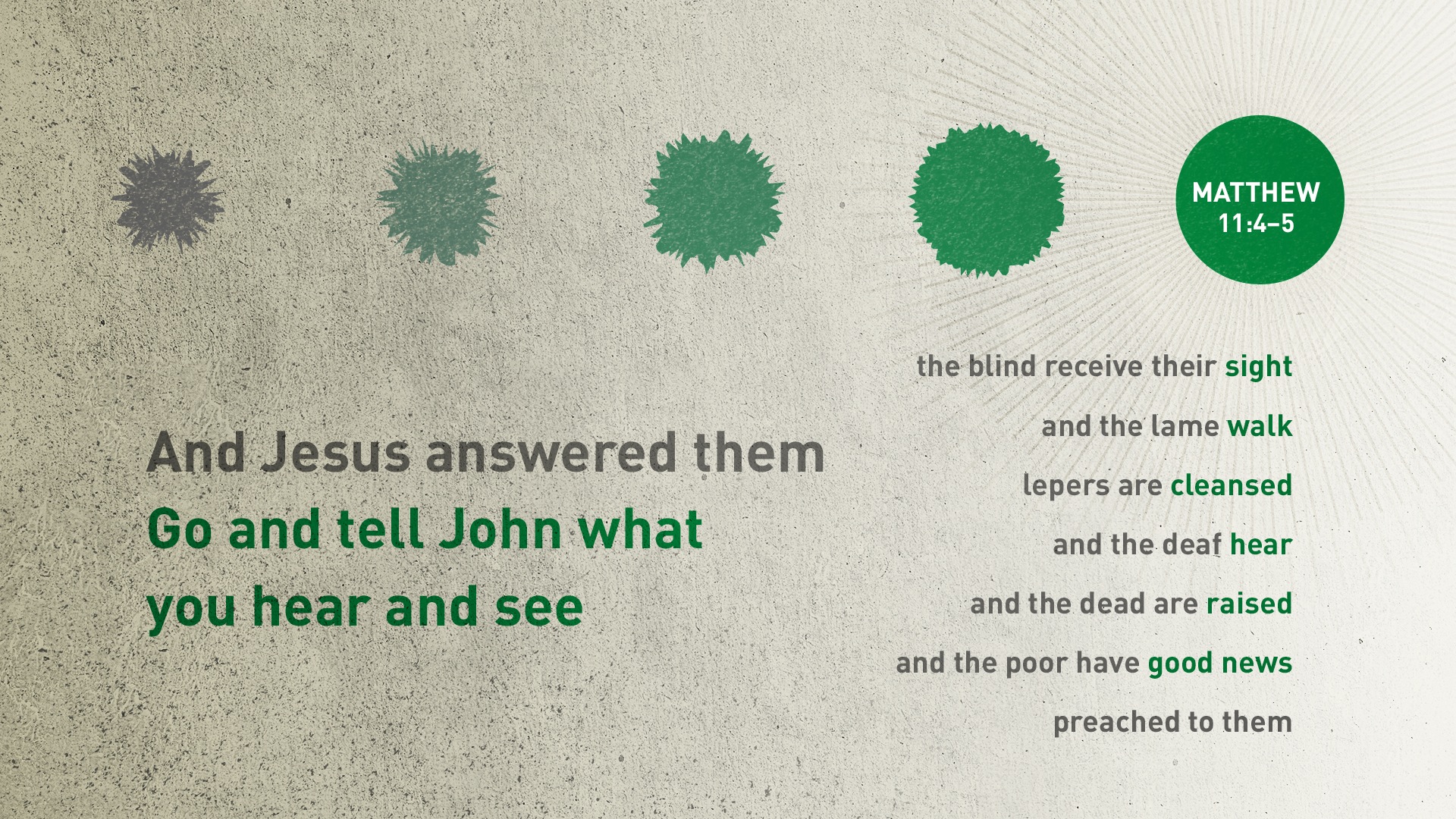
In this Sunday’s Gospel reading (Matt 11:2-11), John the Baptist, who by this time has been imprisoned by Herod, sends messengers to ask Jesus if he is the promised Messiah. Have you ever wondered why John did that? Have you ever wondered why Jesus doesn’t simply answer, “Yes”? Read on!
Indeed, Jesus’ reply to the imprisoned John the Baptist (Matt 11:2–6; cf. Luke 7:18–23) is seen by some commentators as not Messianic. Some have even gone so far as to suggest that Jesus never personally believed he was the Messiah. When asked “Are you he who is to come, or shall we look for another?” (Matt 11:3), Jesus answers in what appears to be a vague manner, using words from Isaiah 61: “Go and tell John what you hear and see: the blind receive their sight and the lame walk, lepers are cleansed and the deaf hear, and the dead are raised up, and the poor have good news preached to them. And blessed is he who takes no offense at me” (Matt 11:4-6).
A very important clue as to why Jesus answered the way he did was discovered in the Dead Sea Scrolls. The Scrolls were written roughly around the time of the Advent of Jesus Christ – between the last three centuries BC and the first century AD. Although they were composed by a sectarian, apocalyptic Jewish sect, they do shed light on what Jews who were roughly contemporaneous to Jesus believed about the coming Messiah.
One of the most important Scrolls that was discovered, known as 4Q521, says this:
For the heavens and the earth will listen to his Messiah…For he will honour the devout upon the throne of eternal royalty, freeing prisoners, giving sight to the blind, straightening out the twisted…and the Lord will perform marvellous acts…for he will heal the badly wounded and will make the dead live, he will proclaim good news to the meek, give lavishly to the needy, lead the exiled, and enrich the hungry.
One can easily see by comparing these two texts why it was that John asked the question about Jesus’ Messiahship, and why Jesus replied the way he did. It was assumed that when the Messiah arrived, according to 4Q521, “prisoners would be set free”. The righteous John, at this time languishing in Herod’s prison fortress at Machaerus, is wondering why Jesus hasn’t sprung him in a “prison break” of sorts. Jesus replies to John by noting that his marvellous works indeed match up with the deeds of the expected Messiah, in line with the teaching of Isaiah 61 and 4Q521. For Jesus to be any more explicit than this would arouse the attention of the secular authorities, prior to the completion of his Messianic mission. However, attentive Jews would have understood Jesus’ claims. Thus, in a culturally relevant manner, Jesus is inviting his fellow Hebrews to consider the evidence of his ministry and draw their own conclusions.



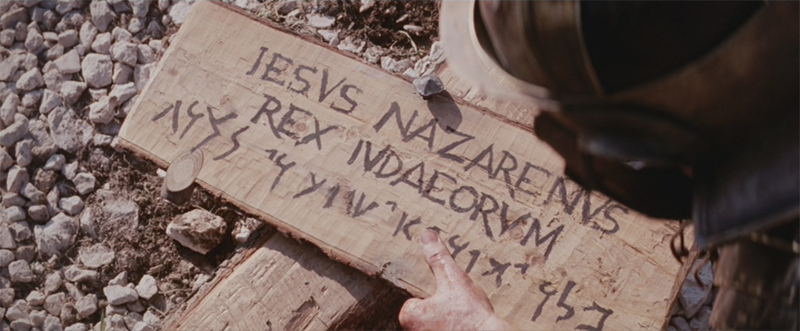 This Sunday, we celebrate the Solemnity of Jesus Christ, King of the Universe. This Sunday also marks the end of the liturgical year. In today’s Gospel (Luke 23:35-43), we read about the crucifixion of Jesus. Speaking of Jesus’ kingship, Luke here mentions the titulus (Latin for “title”, referring here to the the inscription above Jesus’ cross) that read, “This is the King of the Jews”.
This Sunday, we celebrate the Solemnity of Jesus Christ, King of the Universe. This Sunday also marks the end of the liturgical year. In today’s Gospel (Luke 23:35-43), we read about the crucifixion of Jesus. Speaking of Jesus’ kingship, Luke here mentions the titulus (Latin for “title”, referring here to the the inscription above Jesus’ cross) that read, “This is the King of the Jews”.
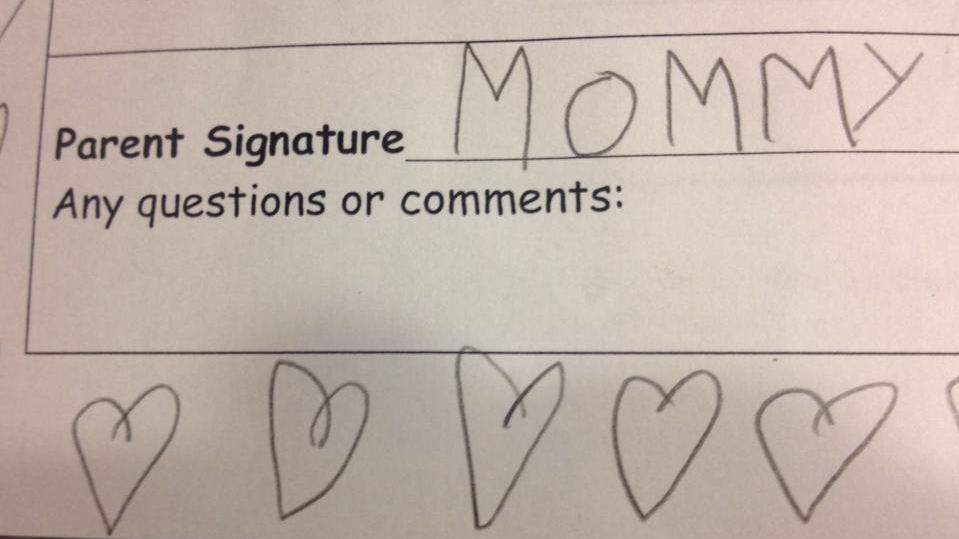

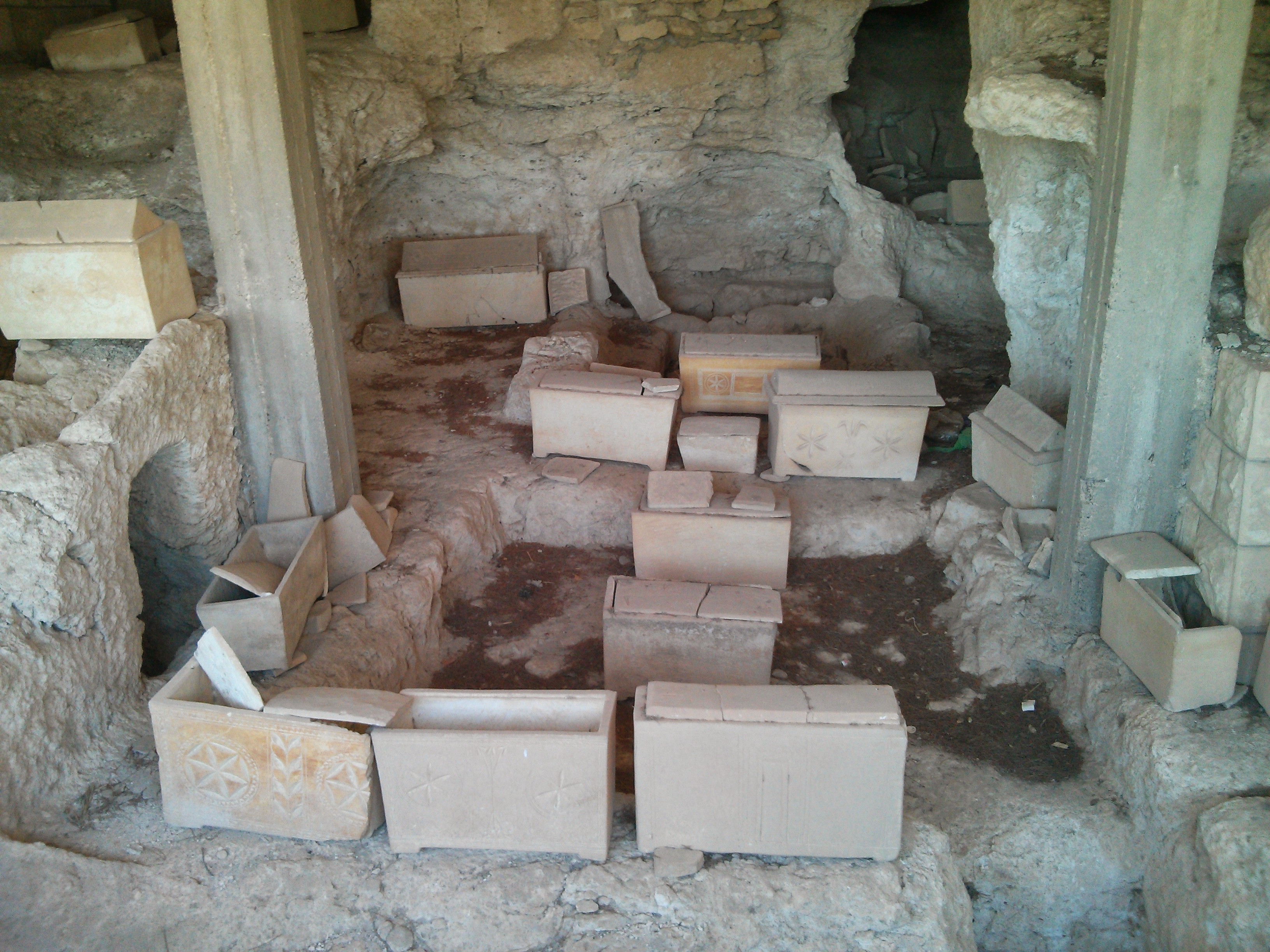
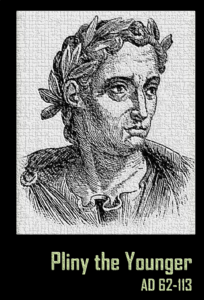 Pliny the Younger is another valuable historical source for information on Jesus and the early Church. Pliny was the governor of the Roman province of Bithynia, located in Asia Minor. In the year 112 AD, he wrote to the Emperor Trajan, asking how he should deal with those in his region who have been accused of being Christians.
Pliny the Younger is another valuable historical source for information on Jesus and the early Church. Pliny was the governor of the Roman province of Bithynia, located in Asia Minor. In the year 112 AD, he wrote to the Emperor Trajan, asking how he should deal with those in his region who have been accused of being Christians.